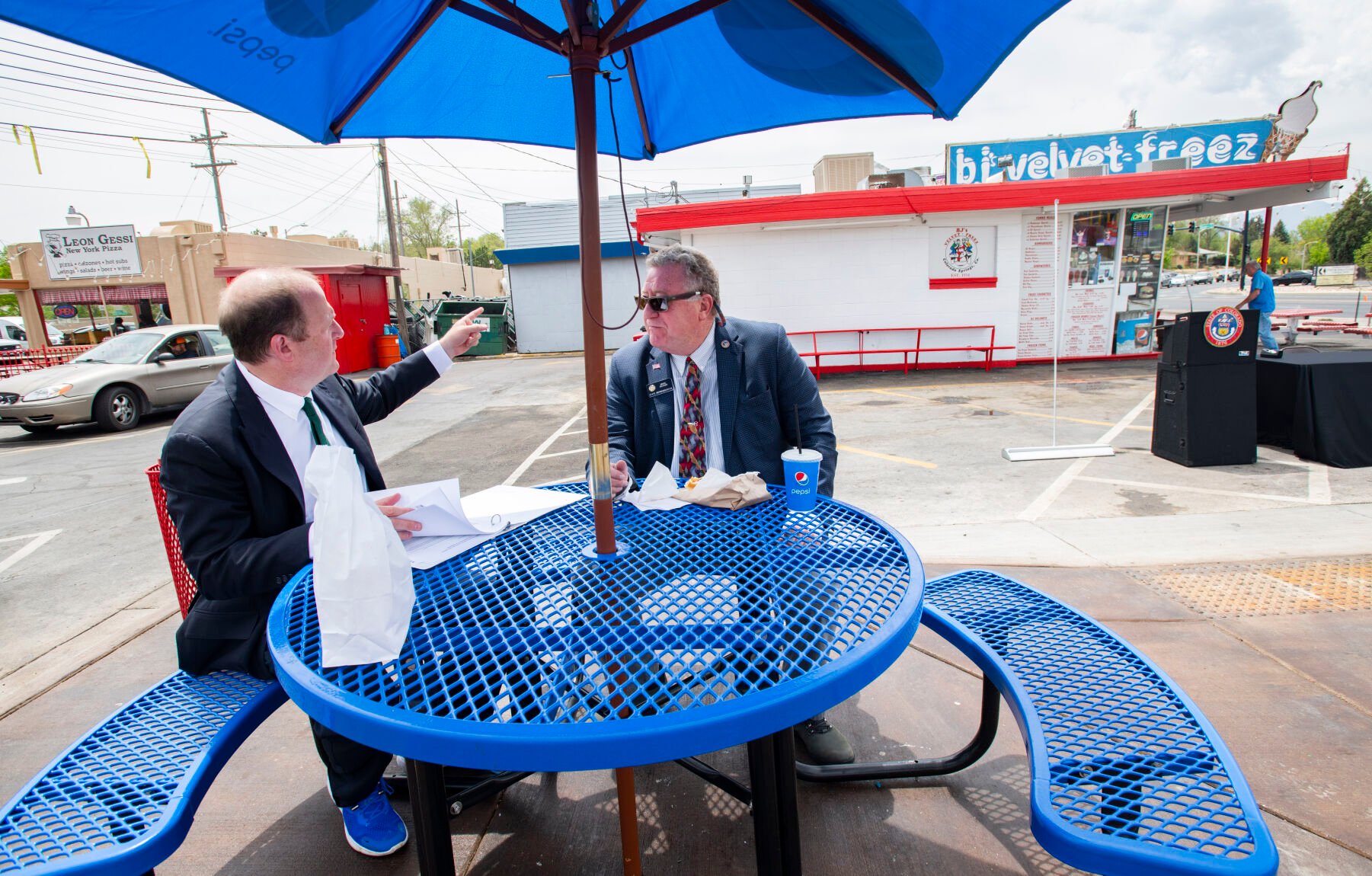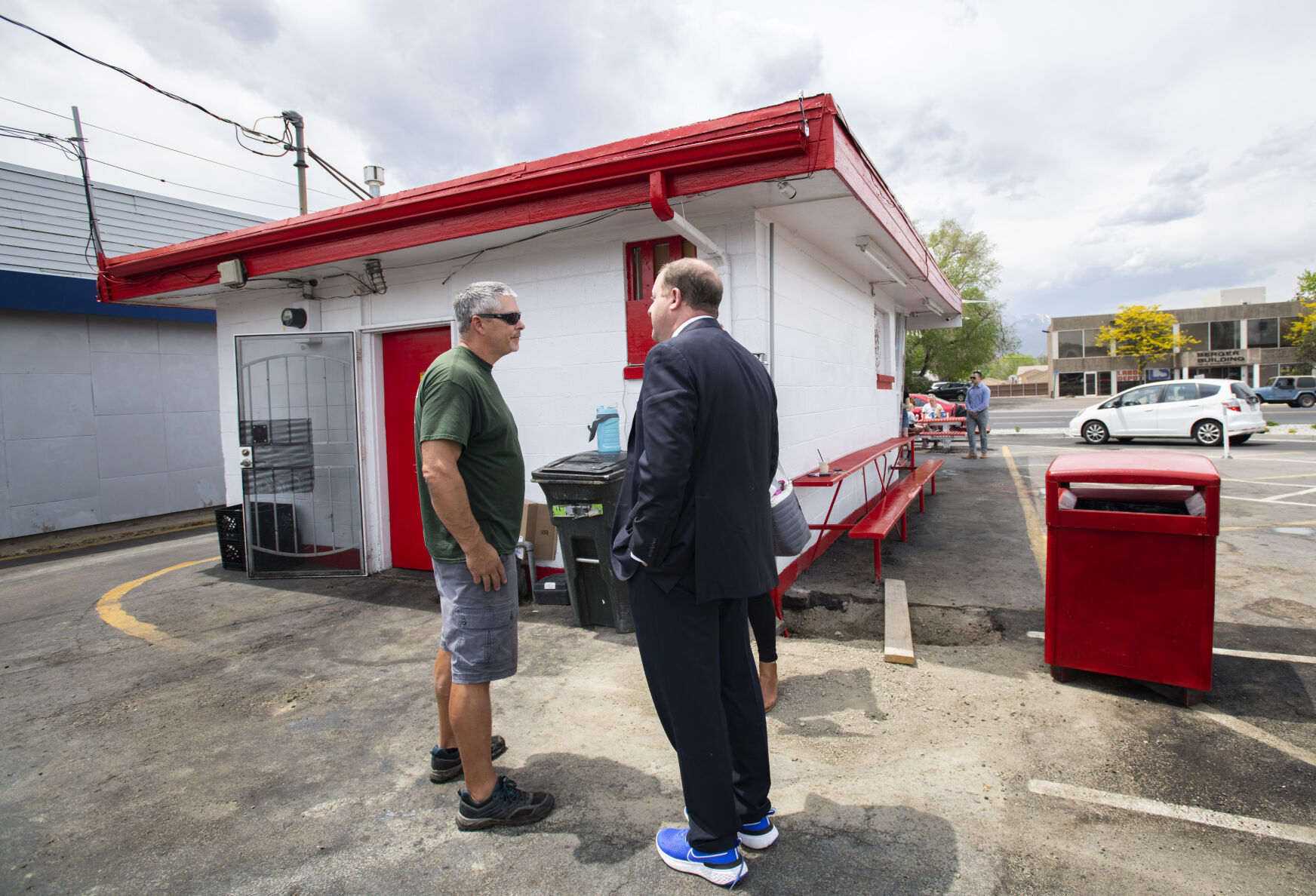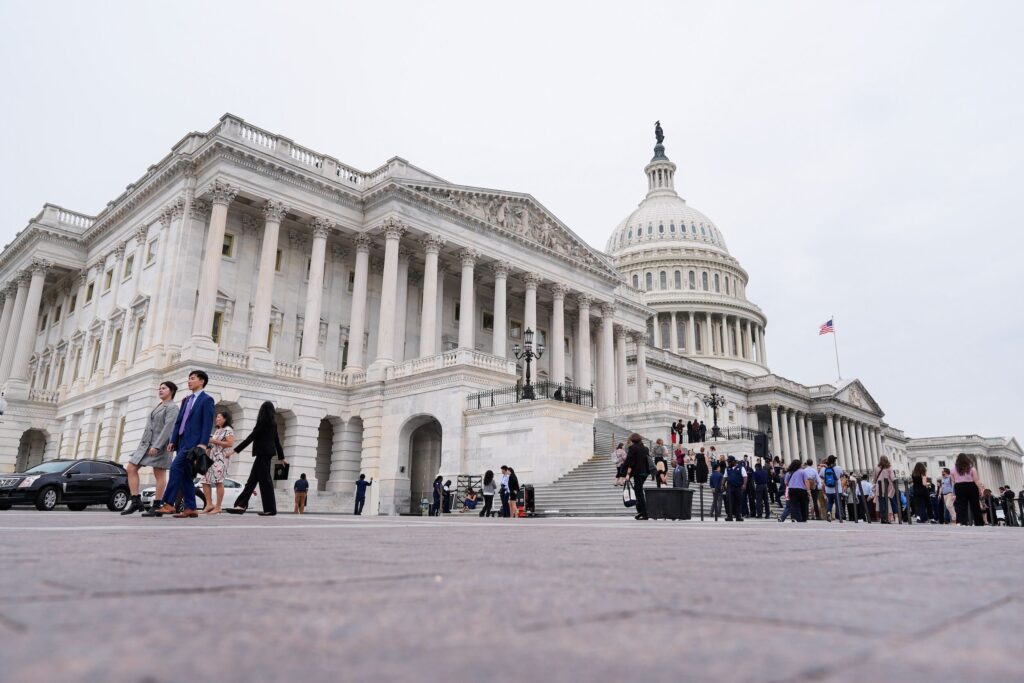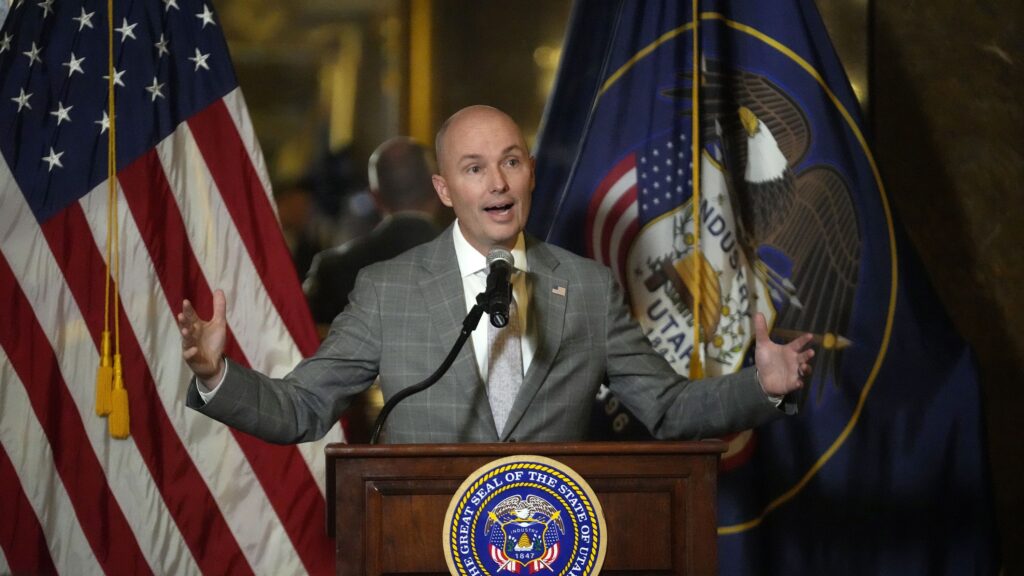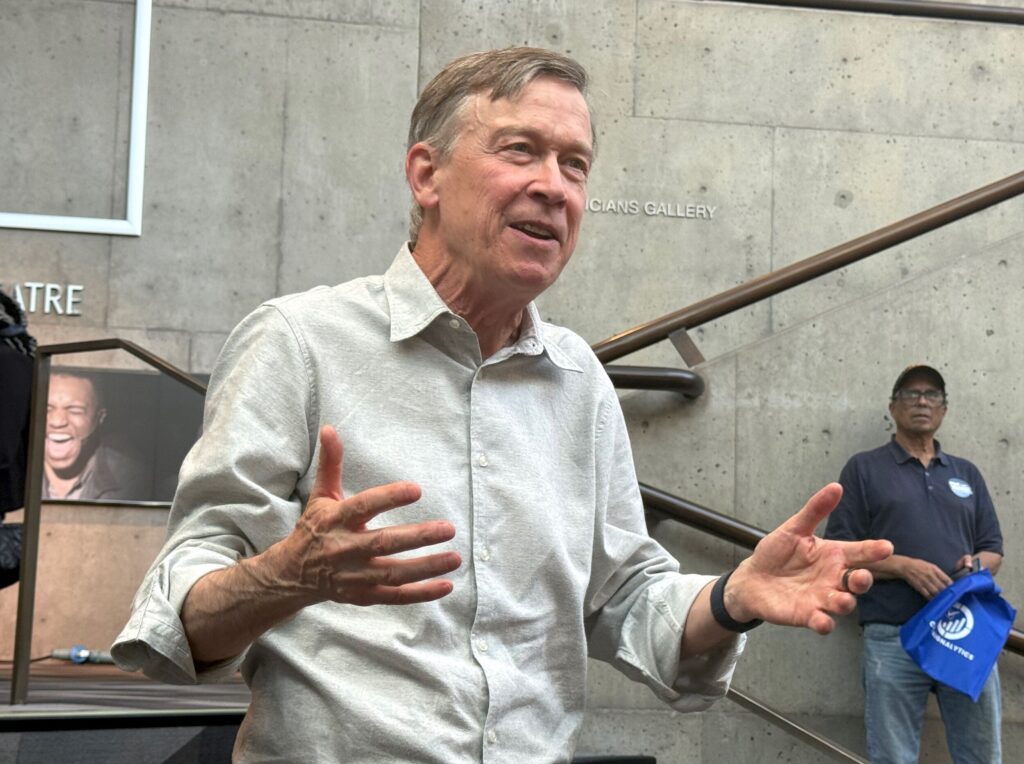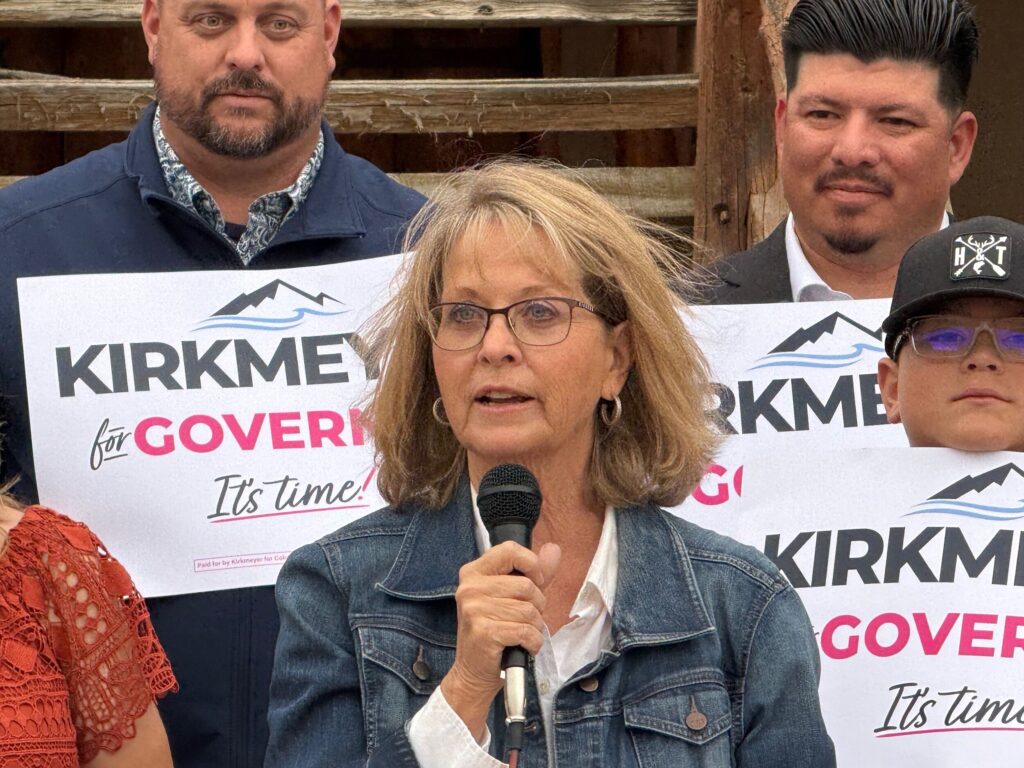Colorado Springs leaders urge Polis to focus on housing crunch

Saving Coloradans money has been Gov. Jared Polis’ battle cry since this year’s legislative session began in January, and in between signing nine bills on that theme into law on Monday, the governor asked community leaders during a roundtable in Colorado Springs what would further help.
Polis ticked off several new measures that came out of this year’s Democratic-controlled General Assembly, including what he called “significant property tax cuts,” rebate checks of at least $500 per person under the Taxpayer’s Bill of Rights, sales tax reduction for small businesses, early childhood education programs, funding for affordable housing development, workforce development and improvements in behavioral health care.
Representatives spanning education, small business, food insecurity, affordable housing, economic development, employment and people of color advocacy responded by highlighting multiple issues – but housing for low-income and middle-income residents notably led the local wish list.
Research shows Colorado Springs is 12,000 homes short of the current market need, said economist Tatiana Bailey, director of the UCCS Economic Forum.
Gov. Polis signs $700 million property tax relief bill, other cost-saving legislation
And while prices of food and energy “eventually will abate some,” she said at the roundtable, the lack of housing “is not going to go down anytime soon.”
Innovative solutions are necessary, Bailey added, pointing to joint public-private ventures. Bailey said she would also like to see state-sponsored trade apprenticeships and promotion of high-in-demand careers beginning when kids are young.
The local housing crunch started more than decade ago, said R. Lee Patke, Jr., a founder of the Affordable Housing Collaborative, which began in 2018 as a united effort to increase the city’s supply of affordable housing, and executive director of Greccio Housing, a nonprofit affordable housing developer.
Since 2011, more new households have come into the community ever year than more new households were constructed, he said.
Patke said the collaborative is calling for sales tax exemptions for contractors on building materials and outside-the-norm relief, such as access to lodging and rental taxes for short-term rental properties while waiting for new affordable housing units to come online.
The community also faces a shortage of middle-income condominiums and townhomes, said Colorado Springs Housing and Building Association CEO Renee Zentz.
“They aren’t being built at the level they were before,” she said.
Johnna Reeder Kleymeyer, president and CEO of the Colorado Springs Chamber & EDC, calls it “the missing middle” for the rental market and homeownership, and the dearth is affecting business owners’ ability to hire employees.
“All states are competing for talent in economic development,” she said, arguing areas with accessible housing will attract recruits. “We need people to fill our current jobs.”
Part of the problem, Polis said, is that Colorado does not authorize statewide zoning or building codes, and, instead, laws are primarily adopted and enforced at local levels.
Perhaps Colorado will go the way of other states in enacting by-right property development, the governor said. That would advance a development proposal that conforms to zoning and building codes to the construction phase without discretionary approval, such as conditional use permits.
A process to revise Colorado Springs’ zoning ordinance is underway, Zentz said, and increasing density and other changes to encourage low- to mid-market housing are among the issues on the table.
Further reforms to legal action over construction defects would help, Zentz said, adding, “Liability for trades makes it more expensive.”
She also advocates for the ability to transfer senior homestead tax exemptions for seniors if they move.
Polis also heard from small businesses and nonprofits, which emphasized that supply shortages continue, particularly with interstate trucking and driver shortages. Polis said a new law in Colorado that lowers intrastate commercial driving licensure from 21 to 18 years old is intended to attract more in-state recruits.
Roundtable participants also said streamlining business licensing processes, raising pay for lower-end employees, and federal funding for healthier meals at schools would make a difference. Kyle Hybl, president and CEO of El Pomar Foundation, added that teaching communities how to go after federal dollars would also address some of the gaps.
